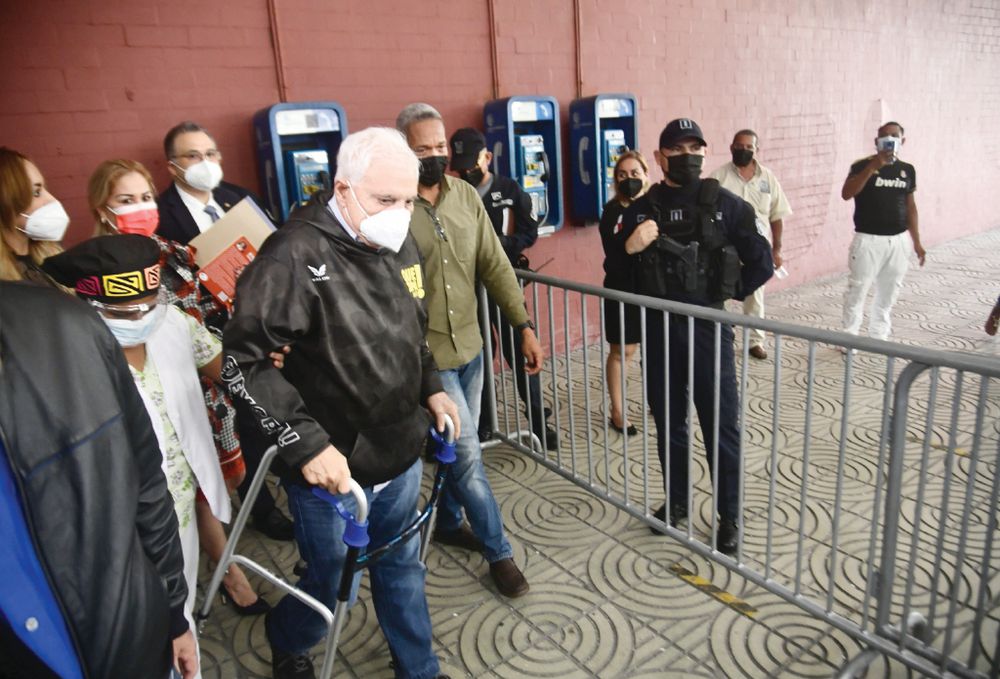“Disappeared” Pegasus spyware used in Panama in 2012

Pegasus, the spy software manufactured by an Israeli company, was used in Panama four years before that same technology was used to monitor more than 50,000 cell phones of politicians, activists, and journalists from various countries around the world reports La Prensa.
An investigation by The Washington Post and 16 associated media explains that the list of spies provided by Forbidden Stories, a non-profit journalistic organization based in Paris, and Amnesty International, goes back to 2016. By then Panama already had experience in the issue, since Pegasus entered the country in 2012 and was used until May 2014, according to information from the Public Ministry.
The use of Pegasus to monitor the lives of citizens is an important element in the trial of former President Ricardo Martinelli.
While prosecutors’ offices of several countries in the world are activated to investigate the scope of Pegasus spyware, in Panama the trial of Martinelli for political espionage enters its second week with only two of the six plaintiffs who were at the beginning of the process : Balbina Herrera and Mitchell Doens.
On Monday Special Prosecutor’s Office against Organized Crime continued to present the elements that would prove how the National Security Council (CSN) was used to stalk the lives of at least 150 people between 2012 and 2014.
Pegasus, technology bought from the Israeli company NSO Group, in 2012, is an important piece of the case. In 2019, in the trial of Martinelli, the prosecutor Ricaurte González explained that the negotiation between the NSO Group and the CSN included the installation of Pegasus and the training of the personnel who would use it.
Pegasus was one of the three software that was used to monitor politicians, businessmen, trade unionists, journalists, and other activists. It cost $8 million, according to investigations by the Public Ministry, and local and foreign bank accounts were used to triangulate the payments to acquire the system. The key company for the process was Caribbean Holding Services, linked to Aaron Ronny Mizrachi, partner of Martinelli’s sister.
According to the certificate of use, the purpose of the technology was “the collection and compilation of information on mobile devices for the exclusive use of the Government of Panama.”
According to the prosecution, the last time that Pegasus reported activity was on May 16, 2014, days after Panama chose a new president: Juan Carlos Varela.
On June 7, 2019, in the trial (annulled) for the punctures case, protected witness 8430145 spoke about the spy system: in May 2014, two months before handing over power to Varela, Martinelli asked to be taken to the Presidency the hard drive of the computer where the information resulting from the interceptions was stored. According to the witness, Ronny Rodríguez, one of the CSN agents in charge of wiretapping, told him that Martinelli had asked for the Pegasus hard drive, a mission that he and agent William Pittí were assigned to do.
Ronny Rodríguez, who never appeared at the trial because he is a fugitive, also revealed that all the printed documents related to the Pegasus operation were shredded, deposited in paper bags, and, finally, burned by Pittí at his residence, lin Arraiján.
The Court, in August 2019, found Martinelli “not guilty” of spying on communications. But, in November 2020, the Court of Appeals ordered a new trial, a process that began on July 21.
Missing
The whereabouts of Pegasus is unknown Like the first wiretapping technology that was purchased from the Israeli MLM Protection, for $13.4 million, with funds from the National Assistance Program, At the time, the Public Ministry verified that Pegasus worked on the 6th floor of the PH Oceanía Business Plaza Torre 3000. where Martinelli has his offices. Between September and October 2015, the prosecution made an inspection of the Cable & Wireless company and verified that under the IP number 186.74207.178 —server with which the equipment was registered— a contract of 10 megabytes of internet was made, from 29 from January 2013 to May 14, 2014.
Harry Díaz, a former magistrate of the Supreme Court who acted as prosecutor in the case when he was in charge of the Court, told La Prensa that the withdrawal of four of the six plaintiffs “does not weaken the process in any way.”





